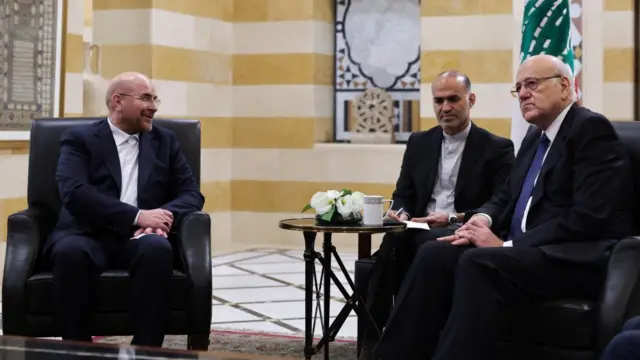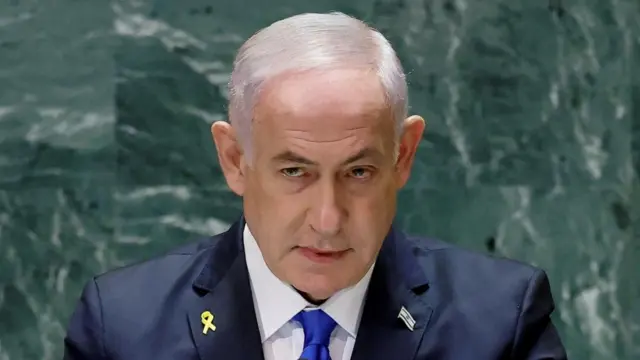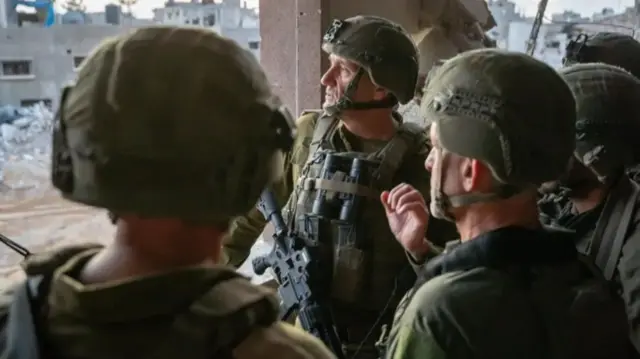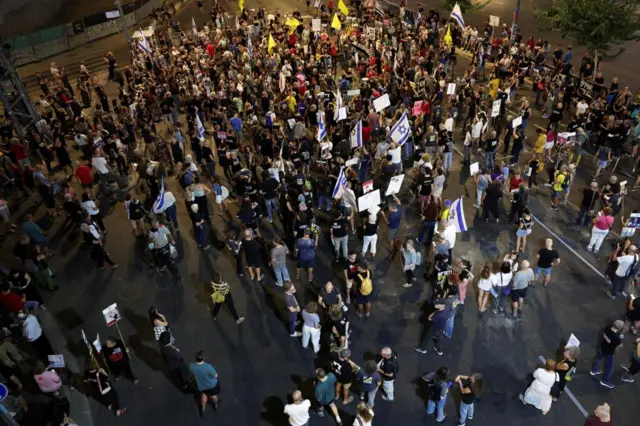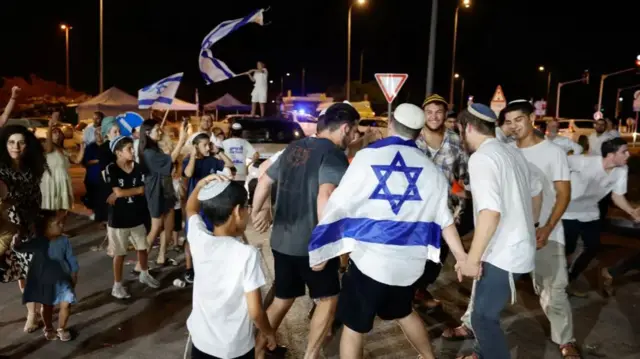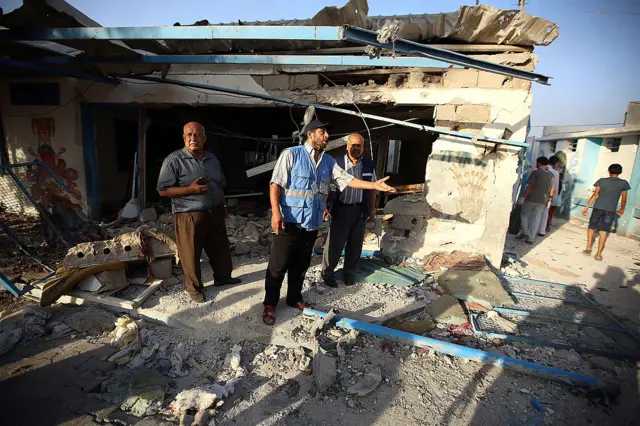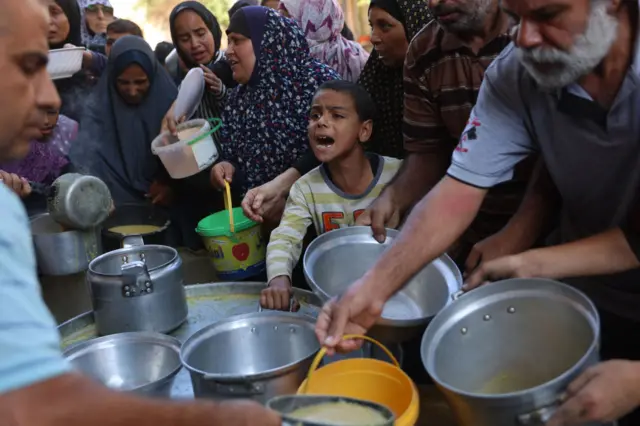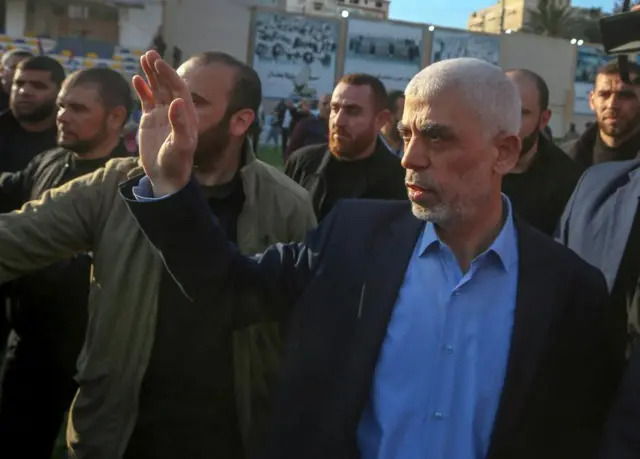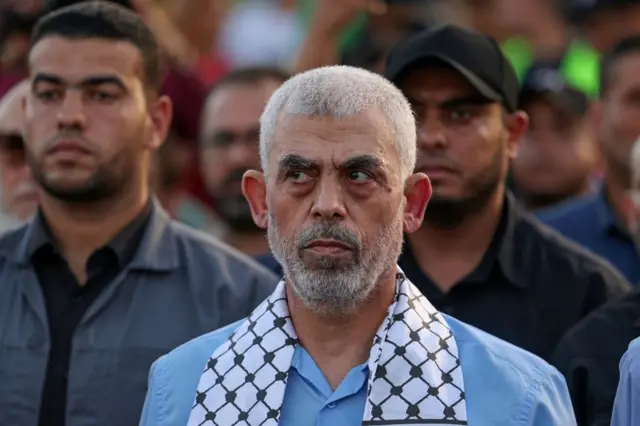Watch: IDF drone footage 'shows Sinwar in final moments'published at 10:54 BST 18 October 2024
Sinwar is shown sitting in a chair in a video provided by the Israel Defense Forces (IDF)
Drone footage released by the Israeli military on Thursday is said to show Yahya Sinwar's final moments before he was killed.
The video appears to be shot from a drone which flies through the open window of a mostly destroyed building.
It approaches a man sitting motionless in an armchair on the first floor of a house that is littered with debris.
The man, who seems to be injured, then throws what appears to be a stick at the drone and the video ends.

